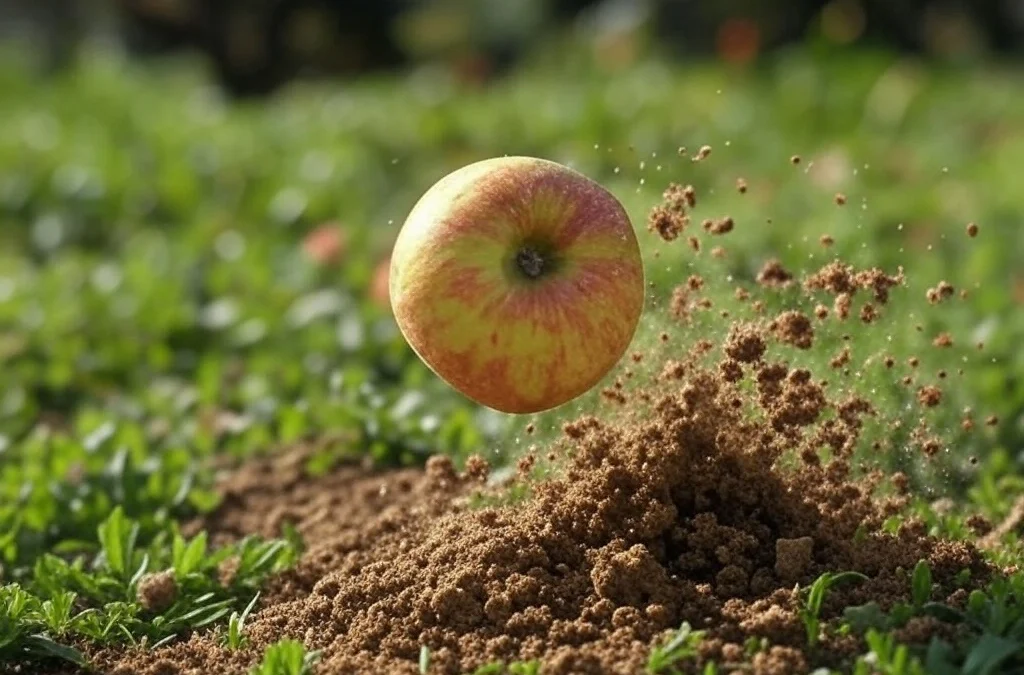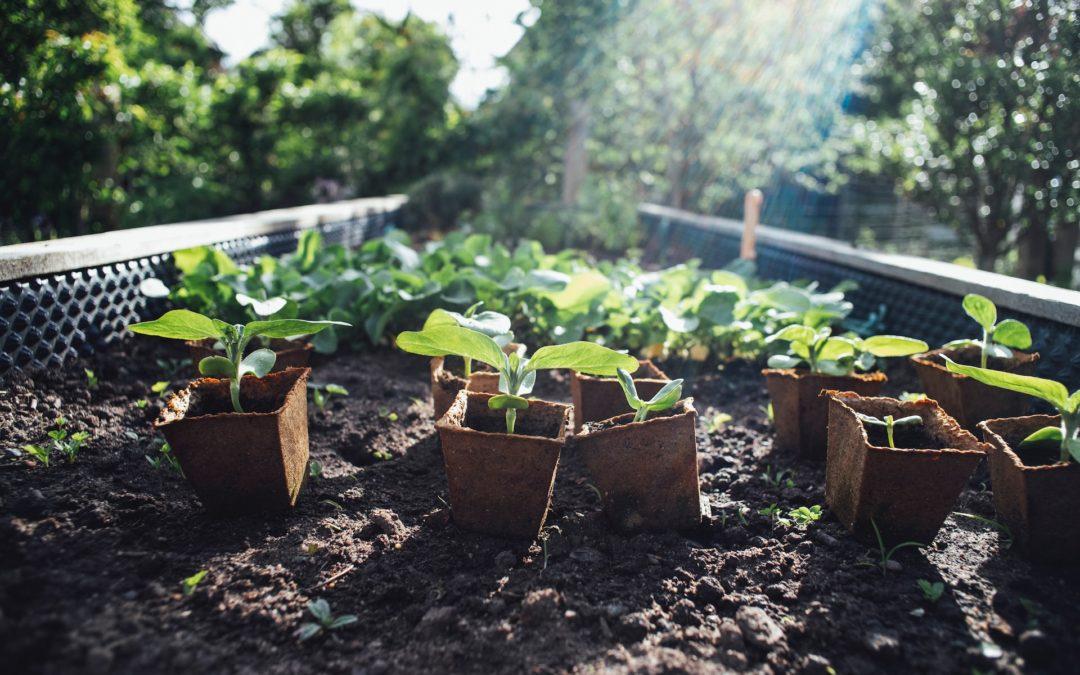Organic gardening is becoming increasingly popular around the world. With a growing focus on sustainability and healthy living, organic gardening offers an excellent way to grow food that is free of harmful chemicals and pesticides. In this article, we will explore the benefits of organic gardening in-depth, including the health benefits, environmental benefits, and economic benefits. We will also discuss how to start an organic garden and provide tips for successful organic gardening.
Organic gardening involves the use of natural methods to grow fruits, vegetables, herbs, and other plants. It is a form of gardening that does not rely on synthetic fertilizers, pesticides, or genetically modified organisms (GMOs). Instead, organic gardeners use natural methods to maintain the health and vitality of their plants, such as composting, crop rotation, and companion planting.
The importance of organic gardening cannot be overstated. With the increasing focus on sustainability and healthy living, organic gardening offers an excellent way to grow food that is free of harmful chemicals and pesticides. It is also an important way to preserve the health of our soil and water resources for future generations.
Benefits of Organic Gardening
There are numerous benefits to organic gardening, including health benefits, environmental benefits, and economic benefits. We have collected the most important ones below:
Health Benefits of Organic Gardening
One of the main benefits of organic gardening is the health benefits it provides. Here are some of the key health benefits of organic gardening:
Nutritional Value of Organic Produce: Studies have shown that organic produce is often more nutrient-dense than conventionally grown produce. Organic farming practices focus on building healthy soil, which in turn leads to more nutrient-rich plants.
No Exposure to Pesticides and Chemicals: Conventionally grown produce is often treated with synthetic pesticides and other chemicals, which can have negative health effects when ingested. By growing your own organic produce, you can ensure that you are not ingesting harmful chemicals.
Improves Mental Health: Organic gardening has been shown to have numerous mental health benefits, including reducing stress, improving mood, and promoting relaxation. Gardening provides a sense of purpose and accomplishment, which can help to boost self-esteem and improve overall mental health.
Promotes Healthy Eating and Lifestyle: Organic gardening encourages a healthy and active lifestyle. It provides an excellent opportunity to get outside and engage in physical activity while also producing healthy, nutrient-rich food.
Improves Food Safety: Organic gardening helps to improve food safety by reducing the risk of contamination from harmful bacteria and other pathogens. This is because organic gardeners do not use synthetic pesticides or fertilizers that can leave harmful residues on crops.
Increases Physical Activity: Organic gardening is a form of physical activity that can help to improve overall health and well-being. It provides an opportunity to get outside, engage in moderate exercise, and enjoy the natural world.
Environmental Benefits of Organic Gardening
Organic gardening has numerous environmental benefits, including:
No Use of Harmful Chemicals: Organic gardening does not rely on synthetic pesticides, herbicides, or fertilizers, which can be harmful to the environment. By using natural methods to maintain soil health and control pests and diseases, organic gardeners help to preserve the health of our soil and water resources.
Supports Pollinators: Organic gardening promotes the health and well-being of pollinators such as bees, butterflies, and birds. By using natural methods to control pests and diseases, organic gardeners provide a safe and healthy environment for these important pollinators.
Reduces Waste: Organic gardening promotes the use of composting, which helps to reduce waste and turn organic materials into nutrient-rich soil amendments. This reduces the amount of organic material that ends up in landfills, which helps to reduce greenhouse gas emissions.
Conserves Water: Organic gardening methods such as composting, mulching, and the use of drought-tolerant plants can help to conserve water resources. This is especially important in areas where water is scarce.
Promotes Biodiversity: Organic gardening promotes biodiversity by encouraging the use of heirloom and non-hybrid plant varieties. This helps to preserve genetic diversity and protect against crop failure due to disease or environmental factors.
Reduces Carbon Footprint: Organic gardening reduces the carbon footprint by eliminating the need for synthetic fertilizers and pesticides, which are often produced using fossil fuels. Additionally, by growing food locally, organic gardeners help to reduce the environmental impact of transporting food over long distances.
Reduces Food Miles: Organic gardening reduces the distance that food needs to travel from farm to table. This helps to reduce the carbon footprint associated with transportation and supports local agriculture and food systems.
Economic Benefits of Organic Gardening
In addition to the health and environmental benefits, organic gardening also offers numerous economic benefits. These include:
Cost-effective: Growing your own organic produce can be cost-effective in the long run. While there may be upfront costs associated with starting a garden, the ongoing cost of buying organic produce at the grocery store can be significant.
Reduces Medical Costs: By eating a healthy diet that includes organic produce, you may be able to reduce your risk of certain diseases and conditions. This, in turn, can help to reduce medical costs over the long term.
Boosts Local Economy: Organic gardening can also help to boost the local economy by supporting local farmers and businesses. By purchasing organic seeds, plants, and gardening supplies from local suppliers, you are helping to support the local economy and promote sustainable, locally grown food.
Increases Soil Fertility: Organic gardening methods focus on building healthy soil through the use of composting, cover crops, and crop rotation. These practices enhance soil fertility, which leads to healthier plants and better yields.
Social Benefits of Organic Gardening
Organic gardening can have positive social impact on you and people around you. For example:
Provides a Sense of Community: Organic gardening can bring people together and foster a sense of community. Community gardens and urban farms are becoming increasingly popular, providing a space for people to come together, share knowledge and resources, and grow healthy food.
Helps to Build Resilience: Organic gardening can help to build resilience in your household and community by providing a source of fresh food and reducing dependence on the industrial food system. In times of crisis, such as natural disasters or supply chain disruptions, an organic garden can provide a valuable source of sustenance and self-reliance.
Other benefits of Organic Gardening:
Enhances Flavor: Organic produce is known for its superior taste and flavor. This is because organic farming practices focus on building healthy soil, which results in more flavorful and nutrient-rich crops.
Provides a Learning Opportunity: Organic gardening provides a valuable learning opportunity for people of all ages, from children to seniors. It can teach important life skills such as problem-solving, planning, and teamwork, as well as providing a sense of accomplishment and pride in your achievements. It can be a valuable tool for teaching children and adults about the importance of healthy food and where it comes from.
Encourages Creativity: Organic gardening encourages creativity by allowing gardeners to experiment with different plant varieties, designs, and techniques. This can be a fun and rewarding way to express creativity and connect with nature.
How to Start Organic Gardening
If you are interested in starting an organic garden, here are some useful tips that will help you to get you started:
Site Selection and Preparation
Choose a site that receives at least six hours of sunlight per day and has good drainage. Remove any weeds or debris and prepare the soil by adding organic matter such as compost or aged manure.
Soil Preparation and Fertilization
Organic gardening relies on healthy soil, so it is important to prepare the soil properly. Test the soil to determine its pH level and nutrient content, and add any necessary amendments to improve soil health. Use natural fertilizers such as compost, bone meal, and blood meal to provide nutrients to your plants.
Composting and Mulching
Composting is a key component of organic gardening. Compost helps to enrich the soil and provides a natural source of nutrients for your plants. Mulching helps to conserve moisture, suppress weeds, and regulate soil temperature.
Planting and Maintenance
Choose plants that are well-suited to your climate and soil conditions. Water your plants regularly and use natural methods to control pests and diseases. Practice crop rotation and interplanting to promote healthy soil and prevent the buildup of pests and diseases.
Tips for Successful Organic Gardening
Here are some additional tips for successful organic gardening:
Use Companion Planting
Companion planting involves planting different crops together that benefit each other. For example, planting marigolds near cabbage or tomato plants can help to repel pests. There are many other such companion planting benefits to consider before sowing or planting vegetables in the garden. You can read more about them here.
Rotate Crops
Crop rotation involves planting different crops in different areas of the garden each year. This helps to prevent the buildup of pests and diseases in the soil.
Practice Crop Diversity
Plant a variety of crops in your garden to promote biodiversity and reduce the risk of crop failure.
Control Pests and Diseases Organically
Use natural methods to control pests and diseases, such as planting pest-resistant crops, using beneficial insects, and using natural pesticides such as neem oil.
Below 7 very useful tips for beginner organic gardeners:
Organic gardening offers numerous benefits, including health benefits, environmental benefits, and economic benefits. By growing your own organic produce, you can enjoy the taste and nutritional benefits of fresh, locally grown food while also promoting sustainable agriculture and protecting the environment. Whether you are an experienced gardener or just starting out, organic gardening is an excellent way to get outside, stay active, and connect with nature while also producing healthy, nutritious food for yourself and your family. So why not give it a try and start your own organic garden today?
Products Related to Organic Gardening
Mason Bee House Wax Coated Mason Bee Hive
Wooden Insect Hotel Carpenter Bee House for Outdoors Attracts Peaceful Bee Pollinators to Your Garden
Available here on Amazon.
Herb Garden Kit Indoor – Certified USDA Organic Non GMO
Available here on Amazon.
Organic Mushroom Grow Kit – Oyster and Pink Mushroom 2-Pack
Available here on Amazon.
Read also: Top 100 Essential Travel Items
The Most Popular on BitGlint

100 Things That Come in Pairs
Pairs are all around us. From what we wear to how we live, many of the things we use or see every day come in twos....

Technology vs Information Technology
Technology is a broad term that refers to the use of scientific knowledge, tools, machines, and systems to solve...

20 Examples of Gravity & What Gravity Really Is
Gravity is one of the most important forces in the universe, but many people don’t fully understand what it really is...

20 Examples of Time and Its Meaning
Time is something we all experience, yet it can feel like a mystery. Have you ever noticed how a minute can fly by...

20 Infinity Examples & Definition
Infinity is one of the most powerful ideas people have ever thought about. It shows up in math, science, philosophy,...

40 Natural Resources Examples & Their Uses
Natural resources are the building blocks of civilization. From the water we drink to the fuel that powers our cars,...

100 Things That Are in The Sky
The sky is full of things - some you see every day, others only once in a while. Some are natural, like clouds and...
Get Inspired with BitGlint




